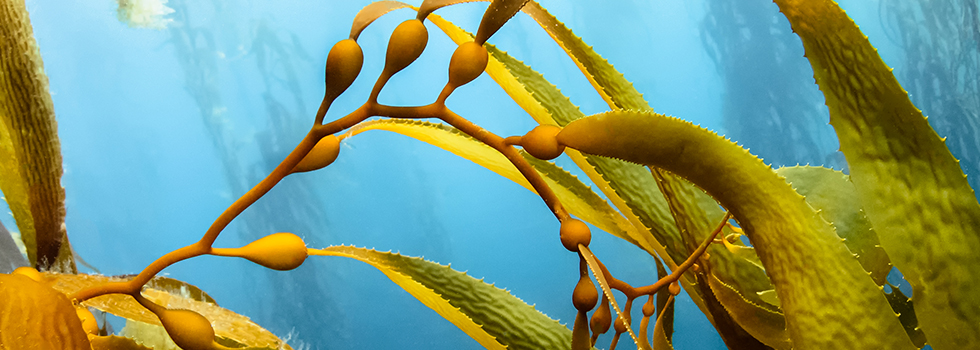The leading cause of death in humans is the formation of malignant tumors. While there have been remarkable strides in cancer treatments, the development of treatment plans and protocols is still in progress. In comparison to other natural substances, fucoidan extracted from marine products has been found to have particularly favorable preventive effects against cancer.
Previous studies have demonstrated that fucoidan, which is the primary component of Okinawa Mozuku, is a sulfated polysaccharide that has been shown to have a variety of effects on cancer cells. It has been reported that there are biological activities that display antitumor, antithrombin, anticoagulant, and antiviral effects. Also, their anti-tumor effects were investigated by various methods, and the mechanism remains elusive.
Hence, in this blog, I would like to share the information from the study “Fucoidan, a major component of brown seaweed, prohibits the growth of human cancer cell lines in vitro” by Suguru Fukahori et al.
In the previous study, 15 human cancer cell lines (6 hepatocellular carcinomas, 1 cholangiocarcinoma, 1 gallbladder carcinoma, 2 ovarian carcinomas, 1 hepatoblastoma, and 1 neuroblastoma) were analyzed using the MTT assay. The results revealed time and dose-dependent suppression of cell proliferation in 13 cell lines. This inhibition was particularly noticeable in cell lines of hepatocellular carcinoma, cholangiocarcinoma, and gallbladder carcinoma. On the other hand, there was no suppression detected in neuroblastoma and one of two ovarian cancer cell lines.
Also, G2/M cells were increased in five of the six hepatocellular carcinoma cell lines and three hepatic cell lines examined. These observations led to a significant increase in the percentage of apoptotic cells. According to the study, fucoidan has potential as an anti-tumor agent in treating cholangiocarcinoma, including hepatocellular carcinoma, cholangiocarcinoma, and gallbladder carcinoma.
In order to deepen the understanding of the above-mentioned anti-tumor effects, this in vitro study analyzed the cytotoxicity of five types of human cancer, which include liver cancer, cholangiocarcinoma, ovarian cancer, hepatoblastoma, and neuroblastoma. It was performed using 15 cell lines and used Mozuku fucoidan.
First, to investigate the effect of fucoidan on morphological changes and cell morphology, the observations were made 72 hours after the addition of the fucoidan solution. Cultured cell density decreased dose-dependently from HCC (liver cancer) to the order of gallbladder cancer (KMG-C), renal cell carcinoma (KURU II, KURM, OSRC2), and ovarian cancer (KOC-5C, KOC-7C).
However, cell density was not reduced in the neuroblastoma cell line (SK-N-SE). The results depicted in Figure 1 indicate that three HCC cell lines (HAK-1B, KIM-1, and KMC-1) displayed dose-dependent apoptotic changes, such as nuclear condensation, cell shrinkage, and nuclear fragmentation.
In addition, the effect of fucoidan on cell proliferation was revealed by MTT assay. Time-course and dose-dependent inhibition of proliferation in four cell lines (HAK-1B, KIM-1, KMG-C, KMC-1), and nine cell lines (KYN-1, KYN-2, KYN-3, HAK-1A, KOC-5C, HuH-6, KURM, OSRC2, KURU II), but no suppression in two cell lines (KOC-7C, SK N-SE). (See Figure- 2)
IC50 values (the lower the IC50 value, the more potent the drug is.) for 72 hours of culture ranged from 18.71 to 299.20 μg/ml. Levels at 72 hours could not be obtained for KMG-C, KMC-1, HAK-1B, and KYN-2 as >50% suppression occurred. However, the IC50 after 48 hours was 13.33 μg for KMC-1, 50.64 μg for HAK-1B, 52.32 μg for KYN-2, and 76.25 μg for KMG-C. IC50 according to tumor type HCC and cholangiocarcinoma were the lowest. (See Figure- 3)
An examination was conducted on the effect of fucoidan on apoptosis, and the MTT assay revealed notable growth suppression in six cell lines during 72-hour cultures. The number of apoptotic cells was significantly increased in five HCC cell lines except for KYN-1, indicating fucoidan-induced apoptosis. (See Figure- 4)
As a result of investigating the effect of fucoidan on the cell cycle, 3 flow cytometry HCC cell lines (HAK-1A, KYN-2, KYN-3) were treated with a fucoidan solution (22.5 μg/ml) after addition to the culture medium. After 72 hours, an increase in the number of cells in the G2/M phase was revealed.
The current study found that fucoidan had a time and dose-dependent effect on cell proliferation, with varying degrees of suppression. The most significant effects were observed in HCC, cholangiocarcinoma, and gallbladder cancer cell lines. Fucoidan may be a potential anti-tumor therapy for certain cancers such as HCC and cholangiocarcinoma. However, it is imperative to obtain more detailed information on the anti-tumor efficacy of fucoidan in future animal studies.




Source: Molecular Medicine Reports July-August 2008 Volume 1 Issue 4. Print ISSN: 1791-2997

Very fantastic visual appeal on this website , I’d value it 10 10.
Thank you for your encouragement.
I appreciated and you gave me the motivation to create a better blog.